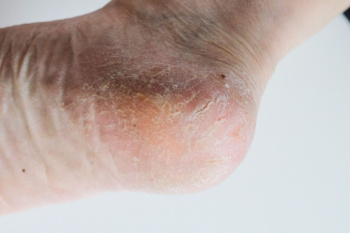
Cracked heels develop when the skin on the feet becomes dry and loses its elasticity, leading to painful fissures. One common cause is prolonged pressure on the feet from standing for long hours or wearing shoes with inadequate support. Dry skin, often worsened by cold weather or dehydration, makes the heels more prone to cracking. Athlete's foot, a fungal infection, can cause peeling and flaking that leads to skin breakdown. Conditions such as eczema and psoriasis contribute to excessive dryness and inflammation, further increasing the risk of heel fissures. Without proper care, cracks can deepen and cause discomfort or infection. If you notice the beginning symptoms of cracked heels, it is suggested that you promptly contact a podiatrist who can offer you effective relief and prevention tips.
Cracked heels are unsightly and can cause further damage to your shoes and feet. If you have any concerns, contact one of our podiatrists from Whitestone Podiatry PC. Our doctors can provide the care you need to keep you pain-free and on your feet.
Cracked Heels
Cracked heels appear unappealing and can make it harder for you walk around in sandals. Aside from looking unpleasant, cracked heels can also tear stockings, socks, and wear out your shoes. There are several methods to help restore a cracked heel and prevent further damage.
How Do You Get Them?
Dry skin is the number one culprit in creating cracked heels. Many athletes, walkers, joggers, and even swimmers suffer from cracked heels. Age and skin oil production play a role to getting cracked heels as well.
Promote Healing
Over the counter medicines can help, especially for those that need instant relief or who suffer from chronic dry feet.
Wear Socks – Wearing socks with medicated creams helps lock in moisture.
Moisturizers – Applying both day and night will help alleviate dryness which causes cracking.
Pumice Stones – These exfoliate and remove dead skin, which allows for smoother moisturizer application and better absorption into the skin.
Change in Diet
Eating healthy with a well-balanced diet will give the skin a fresh and radiant look. Your body responds to the kinds of food you ingest. Omega-3 fatty acids and zinc supplements can also revitalize skin tissue.
Most importantly, seek professional help if unsure how to proceed in treating cracked heels. A podiatrist will help you with any questions or information needed.
If you have any questions, please feel free to contact our office located in Whitestone, NY . We offer the newest diagnostic and treatment technologies for all your foot care needs.
